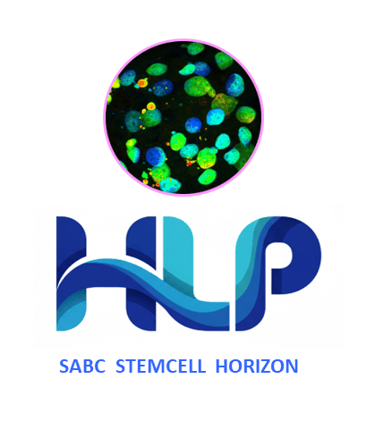
NEWS & EVENTS
S&T News-Innovation
From consulting and strategy development to implementation and support, our comprehensive services can help your business thrive.
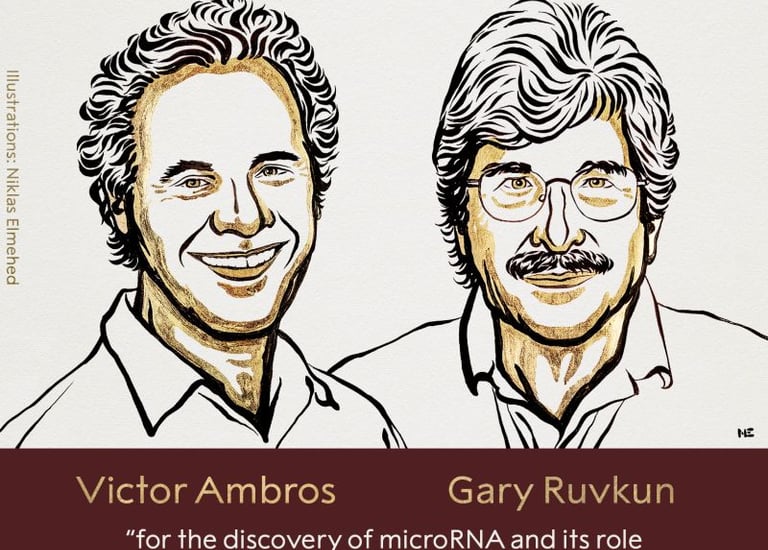

The Nobel PrizeThe Nobel Prize
Follow
BREAKING NEWS
The Nobel Assembly at the Karolinska Institutet has today decided to award the 2024 Nobel Prize in Physiology or Medicine to Victor Ambros and Gary Ruvkun for the discovery of microRNA and its role in post-transcriptional gene regulation.
This year’s Nobel Prize honours two scientists for their discovery of a fundamental principle governing how gene activity is regulated.
The information stored within our chromosomes can be likened to an instruction manual for all cells in our body. Every cell contains the same chromosomes, so every cell contains exactly the same set of genes and exactly the same set of instructions. Yet, different cell types, such as muscle and nerve cells, have very distinct characteristics. How do these differences arise? The answer lies in gene regulation, which allows each cell to select only the relevant instructions. This ensures that only the correct set of genes is active in each cell type.
This year’s medicine laureates Victor Ambros and Gary Ruvkun were interested in how different cell types develop. They discovered microRNA, a new class of tiny RNA molecules that play a crucial role in gene regulation. Their groundbreaking discovery revealed a completely new principle of gene regulation that turned out to be essential for multicellular organisms, including humans. It is now known that the human genome codes for over one thousand microRNAs. Their surprising discovery revealed an entirely new dimension to gene regulation. MicroRNAs are proving to be fundamentally important for how organisms develop and function.
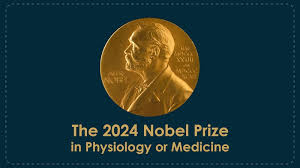

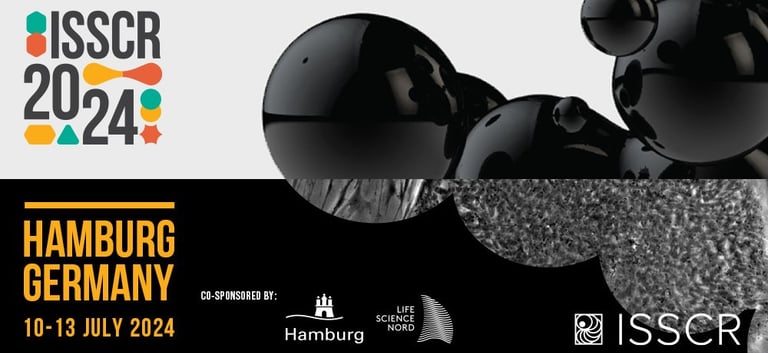

A gathering of the brightest minds in stem cell research across geographies and disciplines.
The world's best and brightest in stem cell research and regenerative medicine convene once a year for the ISSCR Annual Meeting, and you are invited! Join more than 4,000 scientists from around the globe at ISSCR 2024 to take part in a 4-day program comprising the year's most significant new advances in the field.

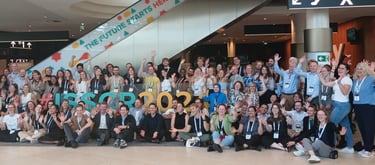
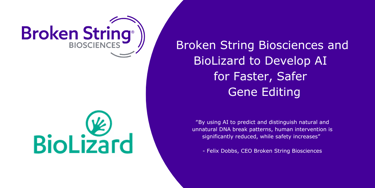

Broken String Biosciences and BioLizard to Develop AI for Faster, Safer Gene Editing
10/07/2025
Eurostar grant supports application of BioLizard’s AI expertise to Broken String’s INDUCE-seq® platform
Resulting technology, called SafeGuide, will enable faster, more cost-effective development of gene edited therapies like CRISPR
BOSTON & CHICAGO & CAMBRIDGE, England–(BUSINESS WIRE)–Broken String Biosciences, a leader in advancing gene editing safety, and BioLizard, an expert in scientific data analytics and AI, today announced the development of SafeGuide, an AI tool for selecting safer, better guide RNAs (gRNA), the gene editing element that tells tools like CRISPR where to repair DNA. With SafeGuide, developers of next-generation gene-edited therapies will be able to quickly find the ideal gRNA with less reliance on time-consuming and expensive wet lab testing, helping to replace current trial-and-error approaches that often take one to two years and result in drug costs of $4 million and more per patient.
The project benefits from a $935,000 grant through the highly competitive Eurostars-3 program. Eurostars is part of the European Partnership on Innovative SMEs, a program co-funded by 37 participating countries and the EU’s Horizon Europe program, designed to drive transnational innovation collaborations. As a strategic partner, Broken String and BioLizard worked closely with Moore Grants & Incentives (MGI) to help shape the project in line with their ambitions, contributing not only to the funding success but also to the content and vision that made this proposal stand out.
The development of SafeGuide combines the strengths of the two companies: Broken String will contribute data and expertise from its INDUCE-seq platform. INDUCE-seq can pinpoint where on- and off-target edits occur both naturally and through gene editing methods like CRISPR with high sensitivity, offering crucial insights to train SafeGuide’s AI models to distinguish safe versus high-risk gRNA designs. BioLizard will develop predictive algorithms that integrate Broken String’s genomic break data with other sequence and structural features to recommend gRNAs with high on-target efficacy and low off-target risk.
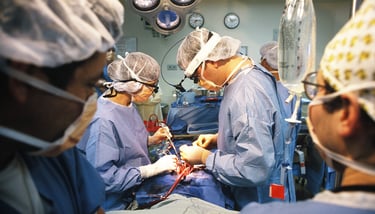

New
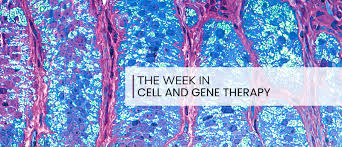

Preclinical data highlight the potential of Aspect’s adrenal Bioprinted Tissue Therapeutics to restore adrenal function and treat primary adrenal insufficiency
Vancouver, BC, Canada – July 14, 2025 – Aspect Biosystems, a biotechnology company pioneering the development of Bioprinted Tissue Therapeutics (BTTs) as a new category in regenerative medicine, today announced new preclinical data at ENDO 2025, the Endocrine Society’s annual meeting held in San Francisco. The company presented an oral and poster presentation highlighting that Aspect’s adrenal BTTs can restore adrenal function, following natural daily hormone rhythms and maintaining long-term performance in animal models of primary adrenal insufficiency.n preclinical studies, adrenal BTTs containing human adrenal cells were implanted into adrenalectomized mice. These BTTs produced cortisol in response to adrenocorticotropic hormone (ACTH) stimulation—which is normally secreted from the brain—and followed the animals’ natural circadian fluctuations in hormone levels. When exposed to high levels of injected ACTH, these mice demonstrated rapid increases in circulating cortisol, confirming that the adrenal BTTs were functionally responsive. In contrast, control animals receiving cell-free implants showed no significant cortisol levels and did not respond to ACTH stimulation. Importantly, adrenal BTTs remained functional in vivo throughout the study period of over six months and improved animal survival.
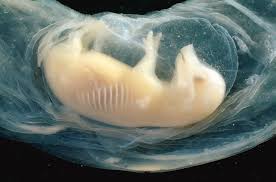

NEWS
13 June 2025
Tiny human hearts grown in pig embryos for the first time
The hearts started to beat in the pig–human hybrids, which survived for 21 days.
Researchers have reported growing hearts containing human cells in pig embryos for the first time. The embryos survived for 21 days, and in that time their tiny hearts started beating. The findings were presented this week at the annual meeting of the International Society for Stem Cell Research in Hong Kong.
Scientists developing human–animal chimaeras grow human cells in animal embryos, with the aim of one day generating animals with human organs that can be transplanted into people. This could provide a way to address the global shortage of organs for transplantation.
Beating heart
In their study, which has not been peer reviewed, Lai and his team reprogrammed human stem cells to bolster their ability to survive in a pig, by introducing genes that prevent cell death and enhance cell growth. They then generated pig embryos in which two specific genes that have key roles in heart development were knocked out. A handful of human stem cells were introduced into the pig embryos at the morula stage, soon after fertilization — a point at which the embryo consists of a ball of about a dozen cells that are rapidly dividing. The embryos were then transferred to surrogate pigs.
The team found that the embryos grew for up to 21 days, after which they did not survive. Lai says it’s possible the human cells disrupted the function of the pig hearts.
When the researchers took a closer look at the embryonic hearts, they found that they had grown to a size equivalent to that of a human heart at the same stage of development — the size of a fingertip — and were beating, says Lai. The human cells could be identified because they had been tagged with a luminescent biomarker and were glowing, he adds.


New transplant techniques keep organ donors’ hearts healthy—even after they stop beating
16 Jul 2025
Heart transplant surgeons have long depended on organ donors who have been declared brain dead. More recently, they have also begun to retrieve hearts from people who retain some brain function but die after their heartbeat and circulation both cease—an approach known as donation after circulatory death (DCD).
To ensure that a donor heart still works after it has stopped beating, doctors currently use one of two methods to briefly reanimate the organ. In some cases, an external device pumps warm, oxygenated blood through the heart after it has been removed. Unfortunately, these machines are extraordinarily expensive, labor-intensive, and often don’t give a realistic assessment of a heart’s function. The other option, known as normothermic regional perfusion (NRP), restarts the heart while it is still inside the donor’s body—a method that, unlike external devices, can also be used for pediatric hearts. But NRP lies at the center of a fierce ethical debate. Some critics argue that it blurs the definition of death, and many hospitals prohibit its use.
Now, surgeons at two separate institutions have developed new ways to circumvent these ethical issues. One approach uses a simplified circuit to temporarily reanimate infants’ hearts on the surgical table—a breakthrough that could potentially expand the donor pool for pediatric heart transplants in the U.S. by up to 20%. The other strategy , lead study author Aaron Williams explains, challenges a fundamental assumption about heart transplantation: “Do you even need to reanimate the heart?”
a
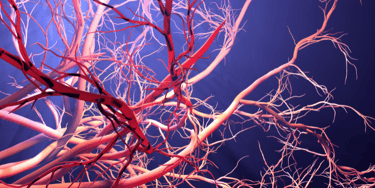

3D-printing vascular grafts to mimic human blood vessels
1 Aug 2024
3D-printing vascular grafts to mimic human blood vessels
Researchers at the University of Edinburgh (UK) present a novel two-stage tissue engineering process to create better vascular grafts for use in bypass surgeries.
Many cardiovascular diseases ultimately require bypass surgery, whereby a vascular graft is installed to navigate blood flow around a damaged blood vessel. Currently, autologous grafts are the mainstay of treatment, which generally involves the removal of vessels from the leg, arm or chest to replace faulty cardiac arteries. However, these often confer issues at the donor site and do not possess the mechanical properties required to adequately replace native vessels. Synthetic grafts have limited use in larger-diameter arteries, but for smaller vessels they frequently result in infection or intimal hyperplasia – where thickness is reduced by cell growth inside the lumen.
First Gene-Modified Pig Liver Xenotransplantation Into Human Recipient
March 26, 2025
Credit: dusanpetkovic / iStock / Getty Images Plus
Chinese researchers report successfully transplanting a gene-modified pig liver into a human recipient that integrated without signs of rejection, marking a significant milestone in addressing the critical shortage of liver organ donors. This breakthrough, published in Nature Medicine, follows a string of successful transplants that began in 2022. Surgeons in China and the United States transplanted hearts, kidneys, and a thymus gland from pigs into a handful of patients. Several recipients died within months—though it is unclear if that was primarily caused by the xenotransplantation—and others recovered well and were discharged from the hospital.
As to why the liver has lagged behind these other pig organ transplants, co-senior author Lin Wang from Xijing Hospital at the Fourth Military Medical University in Xi’an, China, explained, “Scientists all over the world, especially the scientists from the United States, have transplanted the kidney and the pig heart to human patients—so why is liver xenotransplantation so difficult? The function of the liver is so complicated. The heart’s main function is to pump blood to the whole human body, and the kidneys’ major function is to produce urine. However, the liver has many functions: producing bile, albumin, and factors to modulate the immune system.”
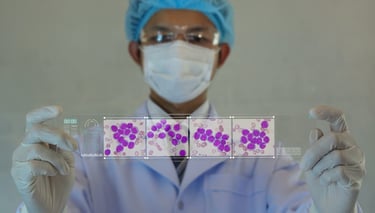

Leukemia Cells Reprogrammed with Epigenetic Switch
April 18, 2025
Acute myeloid leukemia (AML) is a fast-moving blood cancer notorious for blocking the normal development of white blood cells. A new study by researchers from Ludwig Cancer Research, published in Nature, offers a promising approach: a dual therapy that pushes leukemia cells to mature, stripping them of their cancer-promoting traits and significantly improving survival in mouse models.
AML’s hallmark is a developmental roadblock. Myeloid progenitor cells in the bone marrow fail to mature, leading to an accumulation of immature, self-renewing cells that crowd out healthy ones. While a subtype of AML—acute promyelocytic leukemia (APL)—can already be treated with drugs that force differentiation, this strategy has so far remained elusive for most AML patients.
In the new study, co-led by Yang Shi, PhD, professor of epigenetics at Ludwig Oxford and Amir Hosseini, PhD, a postdoctoral fellow at Ludwig Oxford, the team paired an LSD1 inhibitor (LSD1i)—targeting a key histone demethylase enzyme—with a GSK3 inhibitor (GSK3i), a compound known to stabilize β-catenin, a transcriptional co-activator. The combination acted like a molecular lever, flipping gene programs in leukemia cells and prompting them to differentiate. “This combination strategy rewires transcriptional programs to suppress stemness and to promote differentiation,” the authors wrote.
Inside Precision Medicine Oncology Leukemia Cells Reprogrammed with Epigenetic Switch
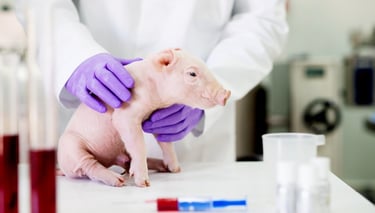

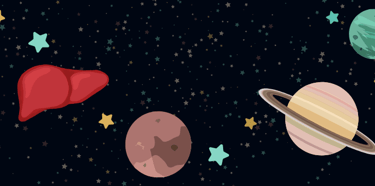

Out-of-this-world techniques: microgravity leads to tissue engineering breakthroughs
21 Oct 2024
Written by Beatrice Bowlby (Digital Editor)
Out-of-this-world techniques: microgravity leads to tissue engineering breakthroughs
Microgravity offers a unique condition for tissue engineering, advancing stem cell-derived liver tissue development. But how can we transport these tissues to Earth without damaging them?
New PODCAST
Preparing for tomorrow’s cell and gene therapies today: lessons from 30 years in the field
Eric Faulkner
Cell & Gene Therapy Insights 2024; 10(7), 1043–1053
If you enjoyed this episode, you can listen to all episodes from The BioInsights Podcast wherever you normally get your podcasts.
Having worked in advanced therapies for nearly three decades and across hundreds of strategic asset scenarios, what do you see as the greatest challenges in the industry then versus now?
EF: The first approved gene therapies faced much the same challenges as the first cell therapy products that preceded them. These early advanced therapies were introduced into reimbursement systems that were never designed for transformative, single-administration therapies. Every aspect of therapy development, supply chain, evidence development, reimbursement, and provider-side dynamics had to be considered. Many of these challenges still exist, similarly to the dynamics of drug-diagnostic combinations in precision medicine.
Read more
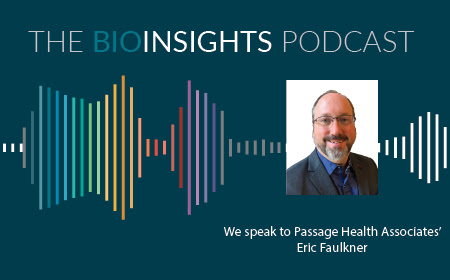

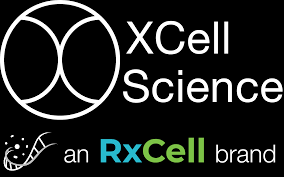

New PODCAST
RxCell Inc. Granted U.S. Patent for iPSC-based Cell Therapy
By Cade Hildreth (CEO) on September 27, 2024
PARK CITY, Utah, September 19, 2024 - RxCell Inc. is pleased to announce the issuance of U.S. Patent 11,946,069 entitled "Method for Generating Multiple Cellular Products from Single Pluripotent Cell Source", a significant advancement in the field of regenerative medicine. This patent, granted on April 2, 2024, provides RxCell with exclusive rights to induced pluripotent stem cell (iPSC)-derived cells for therapy across a broad spectrum of diseases.
Retinal Cells: Targeting retinal degenerative diseases such as age-related macular degeneration.
Dopaminergic Neurons: Addressing neurodegenerative disorders like Parkinson’s disease.
Neural Lineages: Generating various neural cell types for treating neurological conditions.
Hepatocytes: Developing liver cell therapies for hepatic diseases.
Endothelial and Mesenchymal Cells: Producing vascular and connective tissue cells for a range of therapeutic applications.
BioInformantRead on blog or Reade
By Cade Hildreth (CEO) on July 23, 2024
PHOENIX, June 24, 2024 -- Creative Medical Technology Holdings, Inc. (“Creative Medical Technology” or the “Company”) (NASDAQ: CELZ), a leading commercial stage biotechnology company focused on a regenerative approach to immunotherapy, urology, neurology, and orthopedics, today announced that it has successfully generated human induced pluripotent stem cells (iPSC)-derived Islet Cells that produce human insulin.
The iPSC clinical line that generated these insulin producing Islet Cells is part of the Company’s iPSCelz® program, which is validated by Greenstone Biosciences Inc. (“Greenstone”). The iPSC clinical line, which is currently utilized in a number of our FDA cleared clinical programs in the U.S., has also been utilized to derive validated


To learn more about the expanding market for iPSCs, view the “Global Induced Pluripotent Stem Cell (iPS Cell) Industry Report - Market Size, Trends, and Forecasts.”
New data presented at CAR-TCR Europe demonstrates that it’s now possible to rapidly expand CAR T cells to clinically relevant doses, even when autologous starting material is scarce. That has the potential for a meaningful impact on patients who may have difficulty producing enough starting cells.
In a study, the expansion of 15 million CAR T cells to 2.6 billion within 7 days demonstrated, for the first time, the ability to rapidly produce high-quality CAR T cells, using protocols developed by Terumo Blood and Cell Technologies for the Quantum Flex™ Cell Expansion System and the Finia™ Fill and Finish System. BioCentriq, a CDMO, generated the data on the two platforms, in tandem with its own LEAP Advanced Therapy Platform.
Watch on demand as David Smith, PhD, Vice President of Development at BioCentriq, shares the data and his analysis. You’ll also hear what he’s learned about the importance of technology transfer, as well as keeping the end in sight, beginning with process development.
